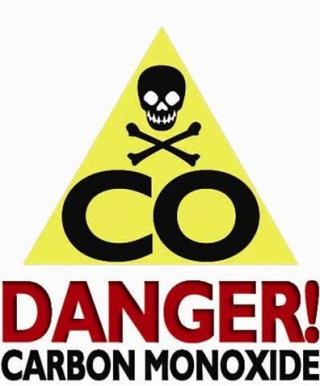Carbon Monoxide Danger

CARBON MONOXIDE AWARENESS
In light of a recent near fatal carbon monoxide event in Weymouth, I would like to remind you all of the importance of carbon monoxide detectors as well as smoke alarms in the home. http://boston.cbslocal.com/video?autoStart=true&topVideoCatNo=default&clipId=10081449
As of March 31, 2006, carbon monoxide alarms have been required in all residences with potential sources of carbon monoxide. The vast majority of homes will not be required to install hard-wired systems although, where hard-wired systems are required by regulation, the deadline was January 1, 2007. The Board of Fire Prevention Regulations (BFPR) passed emergency regulations to implement the law known as “Nicole’s Law”.
Consumer Information
The Department of Fire Services is distributing A Consumer’s Guide to Requirements for Residential Carbon Monoxide Alarms. This guide and information about the regulations can be obtained from local fire departments and on the DFS website at http://www.mass.gov/eopss/agencies/dfs/dfs2/osfm/pubed/fs-topics/fs-topics-a/carbon-monoxide-detectors.html
General Requirements
For most residential buildings with fossil fuel burning equipment or enclosed parking areas, the new regulations require carbon monoxide alarms on every level of the home or dwelling unit including habitable portions of basements and attics. On levels with sleeping areas the alarms must be placed within ten feet of the bedroom doors. The regulations allow the following options for CO alarms:
- Battery operated with battery monitoring; or
- Plug-ins with battery back-up; or
- Hard-wired with battery backup; or
- Low voltage system; or
- Wireless, or
- Qualified combination smoke and carbon monoxide alarm.
Acceptable Combination Alarms
Acceptable combination smoke and carbon monoxide alarms must have simulated voice and tone alarms that clearly distinguish between the two types of emergencies. The State Building Code mandates that only photoelectric smoke alarms are permitted within twenty feet of a bathroom or kitchen. Consumers are urged to check with the local fire department on whether a specific alarm meets the code requirements.
Sincerely,
Chief Kieth Stark
If you have questions about carbon monoxide detectors or smoke alarms, please contact the Fire Prevention Division at 781-340-5000.

